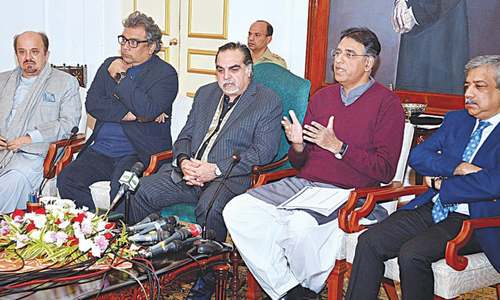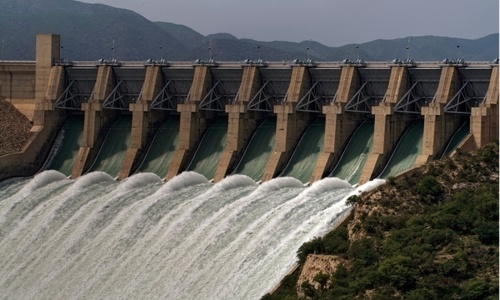HYDERABAD: About 60 per cent of the water being supplied currently to the city does not go through chlorination process of Water and Sanitation Agency’s (Wasa) filtration plants as the civic body is in so deep a financial crisis that it cannot even pay salary to employees.
Sindh government, on the other hand, is yet to take a decision on how to ensure payment of accumulating water and sewerage charges of the provincial departments in Hyderabad. The liabilities of Wasa alone have risen to around Rs3.3bn alone.
Wasa issues bills for Rs471m annually to Hyderabad-based provincial government departments whereas the departments had a budgetary allocation of Rs125m per annum for the civic amenities, leaving a huge deficit in receivables.
Wasa being one of the important civic body of Hyderabad operates four major water filtration plants of the district that feed drinking water to three of its four fully urbanised talukas – City, Latifabad and Qasimabad that are fast witnessing mushrooming of malls, banquet halls, commercial plazas and residential housing schemes.
Around 66MGD filtered water is to be supplied from new and old filtration plants off located Jamshoro road and 8MGD each from Hala Naka and Paretabad filtration plants.
With rehabilitation measures taken on the directives of Supreme Court-mandated commission on water and sanitation in Sindh, capacity of old filtration was increased from 10MGD to 20MGD and that of the new filter plant from 30MGD to 40MGD.
“Wasa needs around Rs105m annually for ensuring chlorination of raw water lifted from Indus river and its irrigation canals. But around 40pc of 66MGD quantum can only be supplied after chlorination process from these reservoirs as the remaining flows were of raw water supplied to consumers,” said two different sources in the civic agency.
Ingredients like alum and chlorine are procured from a Lahore-based company and together with transportation charges and the material’s cost it comes to total expenditure of Rs105m per annum. But given the current resources constraints due to which even employees’ salaries were not being paid the chlorination process had been compromised, said a source.
Interestingly, though the court-directed rehabilitation had a positive impact on filtration plants it had increased the officials concerns as it would also increase overall recurring cost of the system and there was a fear the system could collapse again in the absence of dependable financial resources.
Management of Wasa and Hyderabad Development Authority (HDA) has been drawing ire of Sind High Court in some public interest litigations for their failure to improve performance. The HDA and Wasa chiefs have repeatedly argued before courts that both the organisations need widespread reforms and financial and human resources to enhance efficiency.
The Sindh government posted an officer from Pakistan Administrative Service (PAS) group to make HDA perform but the officer somehow managed to get himself transferred because of the authority’s fragile financial condition. Now an officer of local government, Muzaffar Memon, has been posted as MD of Wasa though without any significant improvement.
Since the day Wasa’s subsidy was discontinued in 1990s, Wasa has been facing financial problems. The agency repeatedly makes appeals to the Sindh government to come to its rescue. The crisis is so deep that the agency has not been able to pay salary to its employees (from BS-1 to BS-19) for past five months and workers’ unions have been staging protest to seek payment of their salaries.
Wasa issues Rs70m bills to domestic and commercial consumers on a monthly basis but its recovery remains less than 50pc. For various reasons Wasa is not able to raise its recovery ratio.
The civil administration often blames it for failing to improve the recovery significantly as it has to repeatedly turn to the government for help.
The Sindh government has also chipped in with financial assistance to clear electricity dues of Wasa by providing some grant to be diverted to Hyderabad Electric Supply Company (Hesco) which was always quick to discontinue electricity supply of water reservoirs and sewerage facilities.
It was only after Sindh High Court’s directives, restraining the power utility from disconnecting electricity supply of water facilities that Hesco avoids cutting off power now.
Published in Dawn, January 2nd, 2020














































